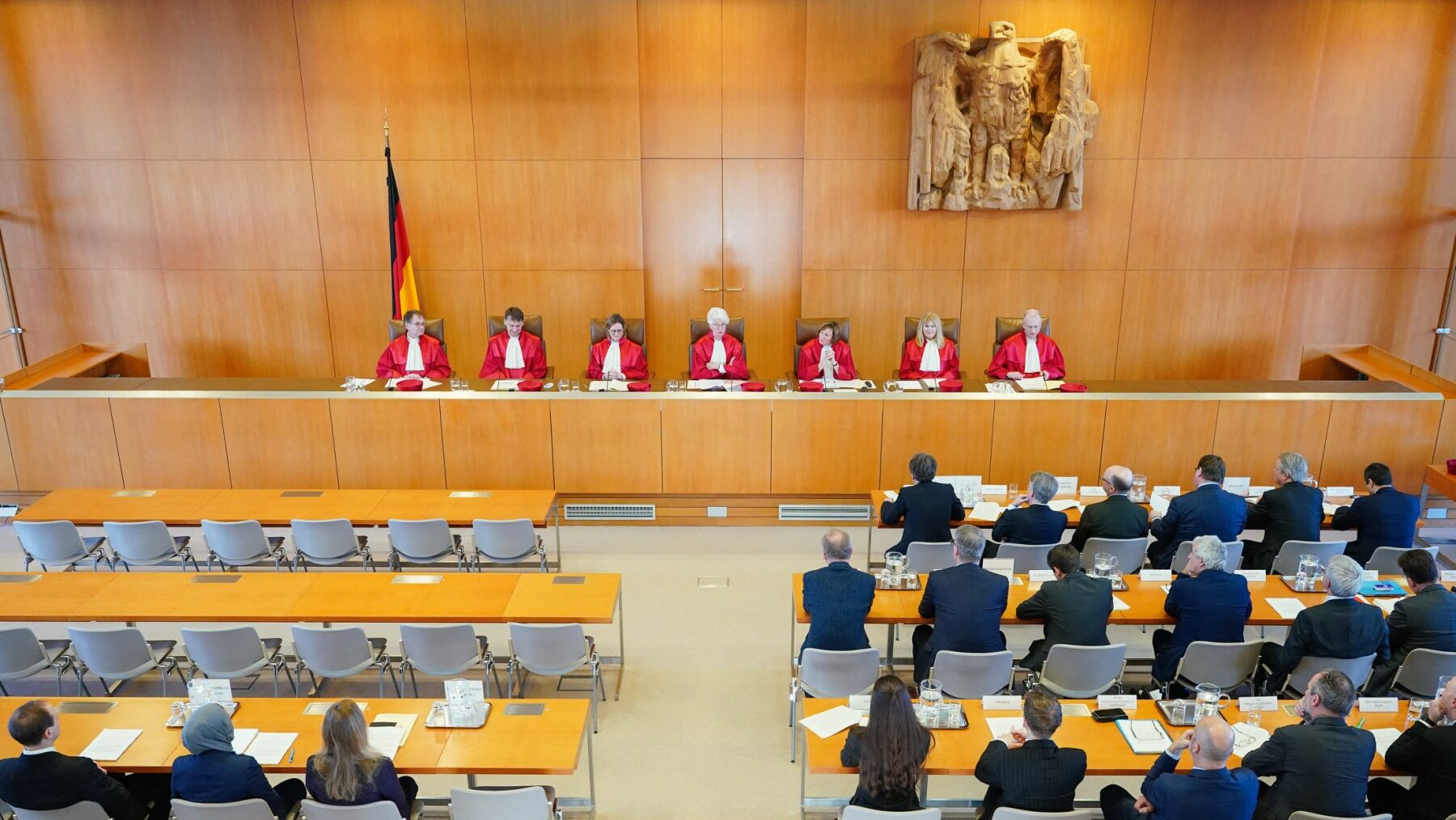
Photo: Uwe Anspach / POOL / AFP
The German parliament’s lower house, the Bundestag, approved a modification of the constitution on Thursday, December 19th, in a bid to stop “extremists” from influencing the federal constitutional court.
All the mainstream parties, including the governing Social Democrats and the Greens, as well as the opposition centre-right CDU/CSU and the liberal FDP, voted to change the setup of the constitutional court and the way its judges are appointed.
The vote was a not-so-thinly veiled jab at the opposition anti-globalist Alternative für Deutschland (AfD) party, which the ruling elites increasingly fear. Chancellor Olaf Scholz said the changes would protect the court in the future “against political influence by extremists and populists.”
The AfD has risen immensely in popularity, mainly because of its tough stance on immigration, but also for calling out the failures of recent governments in managing the economy, crime, and the energy crisis. The party won its first-ever state election in Thuringia in September and came second in Saxony and Brandenburg. The AfD is polling at 19-20% before the national elections in February.
The party has been vilified by its political opponents, who are using every political and legal tool necessary to undermine the AfD’s credibility. The party has been designated as an “extremist” group by the domestic intelligence agency, and there have been calls for it to be banned outright. All the other parties have refused to cooperate with the AfD on a state and federal level.
The AfD overwhelmingly voted against Thursday’s bill and one of its MPs, Fabian Jacobi, accused the other parties of demonising the AfD in order to “continue dividing the court up between them.”
A total of 600 deputies backed the package with only 69 voting against, writes AFP.
Under the new rules, the total number of judges at the top court is set at 16—comprising two panels of eight—who will serve 12-year terms and retire at 68. To cement that structure, a two-thirds majority will now be needed in both houses of parliament to push through any changes.
Under the new measures, if a “blocking minority” prevents the appointment of a judge in one house, the other chamber, the Bundesrat, can elect them instead. The upper house represents the sixteen states of Germany, and its members come mainly from the two largest parties, the SPD and the CDU.
Witnessing the events unfolding in Germany, one could, of course, question whether the constitutional court should not be instead protected from the establishment parties, who are constantly losing support and are relying on foul political tricks to hunt down their political rivals.
